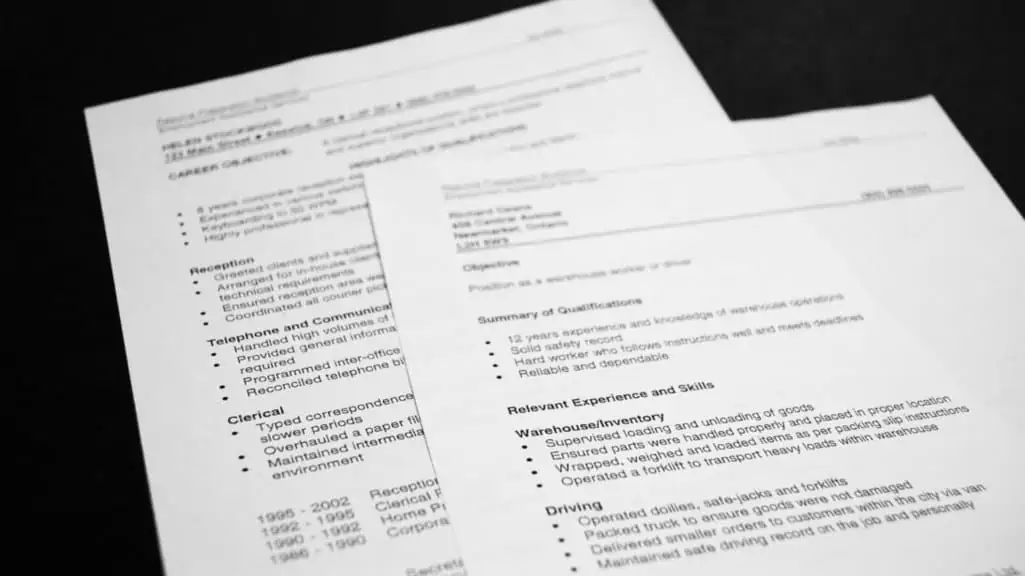Landing a job is rarely easy unless you have a contact on the inside, and trying to figure out what your potential employer wants to see on your resume can be a stressful guessing game that no one wants to play.
Even if you’re unsure what exactly the employer is looking for, some things will catch their eye regardless of the job.
The key is to put down the right skills to make them want you on their team instead of other job seekers.
10 Skills to Put on a Resume
Having these resume skills doesn’t guarantee that you’ll land the job, but job recruiters and potential employers will definitely do a double-take if they see these on your resume.
Just don’t lie about them because most of these can’t be learned overnight.

- Computer Skills
Like it or not, the world has plunged headfirst into the tech age.
Knowing your way around computers is a huge plus, even if the job doesn’t have much to do with it.
Programming languages are the most sought-after computer skill, but even being proficient in things like Excel, data analysis, Powerpoint, or HTML can be desirable to the employer.
Related career: Web Developer
- Interpersonal Skills
Interpersonal skills are how well you’re able to interact and communicate with others.
Unless your job is to guard a cemetery at night, you’ll have to at least interact with your boss and fellow employees at a minimum.
Showing that you can be amicable and work well with others is critical when employers are looking for people to add to their team.
- Leadership
Very few people can put leadership skills on their resume, but it’s a very desirable skill if you can.
Leading even a small group of people is no easy task, and while the job you’re applying for may not require leadership skills, there’s always room to move up later on.
The leadership skill set is among a handful of the best skills recruiters may look for.
This type of work experience isn’t too common, and the conflict resolution and project management that tend to come with it are highly valued.
- Communication
Communication seems like a skill everyone should have, but a surprising amount of people struggle with it.
It’s not just a matter of holding a conversation, but how well you can understand others and be understood.
If you’re able to get your ideas across quickly and easily, you’re already a cut above the rest.
Those with good communication skills are necessary for just about every job, so be sure to have this on your list of skills.
Related career: Communications Manager
- Problem-solving
This skill sounds a bit vague, but what employers see when they spot this on your resume is that you’re able to overcome obstacles when they get in your way.
Problem-solving is a desirable trait as the problems you’d solve working for the employer would be the problems they face.
This is a quick way to turn a job application into a job interview.
- Time Management
An essential skill in everyday life as well as in the workplace, good time management is a fantastic trait for a potential employee to have.
This tells recruiters and employers that you can quickly meet deadlines, keep track of important meetings, and deliver work reasonably.
People with time management on their resumes can also be trusted to work efficiently.
- Active Listening
No one likes repeating themselves, and it goes a long way if you can show that you were listening during an important presentation or a tutorial.
This skill shows employers that they won’t need to repeat themselves if they show you how to do something or ask you to complete a task.
In an age where quick results are necessary to succeed, having someone who can listen is an ideal option to have.
- Management Skills
Similar to leadership, having management skills is extremely attractive even if you aren’t applying for such a position.
This shows that you are reliable and trustworthy and can handle more important tasks.
This doesn’t just mean managing people.
Management skills can apply to managing customer’s accounts, being in charge of a workplace section, or even a small team of your own.
Related career: Business Development Manager
- Customer Service
Customer service jobs require a high amount of “put the customer first” mentality.
This skill isn’t as crucial if you’re going into a customer-free job like a construction worker, but it’s still a nice skill to showcase.
Most jobs do have customer interaction in one way or another, and knowing you can handle those interactions can put your resume above the rest.
Having customer service shows that you can keep your cool in an unhappy client’s face and makes you a much more reasonable prospect to hire.
- Transferable Skills
Transferable skills are a bit vague, but if you can figure out what to put on your resume, you’ll be well on your way to landing the job.
Figure out what skills you learned or brought to the previous job that you think would be useful to the one you’re applying to.
If you were previously a cashier at a grocery store and are applying to be a banker, then you have money management and customer service down pat.
Hard vs. Soft Skills
Learning what defines hard skills and soft skills is a crucial step you need to make to ensure that your resume is more appealing.
A nice mixture of the two is more attractive than a majority of one.

Hard Skills
Hard skills are the job-specific skills that you already bring to the table.
They can teach you, but it’s more appealing if you already know them.
The most popular versions of hard skills today are related to technology, research, and management.
Any technical skills you may have like python, CSS, Adobe, social media, javascript, or photoshop can help in a variety of potential jobs.
Already knowing how to do research or manage projects in your work history is also a huge plus.
The easier you are to train, the more likely that you’ll be considered for a position.
Companies aren’t usually willing to hire a blank slate that they need to train from the ground up.
Soft Skills
Soft skills could be defined as personality traits.
These can’t be taught, so having some of the top skills among them makes your resume stand out from the rest.
This is where you have to examine who you are and what you can bring to a job.
- Are you creative and good with new ideas?
- Are you great with people skills?
- Able to combine adaptability and teamwork for big projects?
These may not seem like important types of skills, but the fact that they cannot be taught means that they are in high demand.
Find out your strengths and don’t be afraid to list them, because your friendliness or punctuality may just land you that job.
How to Find Your Skills
Just because your skills don’t involve being introspective doesn’t mean it should be challenging to pin down your competencies.
Ask around. Having conversations with previous coworkers, bosses, or students from your school days can help you find where you excel.
Talking to a professional in the field you’re trying to join can also be a great help.
They can tell you exactly what employers are seeking and what skills are useful to the job.
Tip: during this process, take the time to ask for professional references.
You’re already talking with your superiors, so why not take advantage of the conversations you’re already having?
How to List Your Skills on Your Resume (Formatting)
Having a plethora of skills to choose from is great, but hiring managers don’t want to read through a series of bullet points.
It’s best if you just include the ones relevant to the job you’re trying to get.
The job description or requirements is an excellent bit of information to review before deciding which relevant skills to mention in the skills section.
That way, you know exactly how to cater your skills to the job and save your additional skills for future interviews.
How you list the skills in your resume can vary based on your resume format.
Some put their skills in a section all on their own for easy viewing, while others sprinkle them throughout the job experience section for more immersive reading.
Additional Skills to Consider
These are all key skills that will help you land that specific job you’ve been looking at, but there are a few more to keep in mind.
The more programs and websites you’re familiar with, the more options you have in your job search.
Some that you may not have heard of that are a huge help are WordPress, QuickBooks, google analytics, LinkedIn, and the big platforms like Microsoft and Apple.








